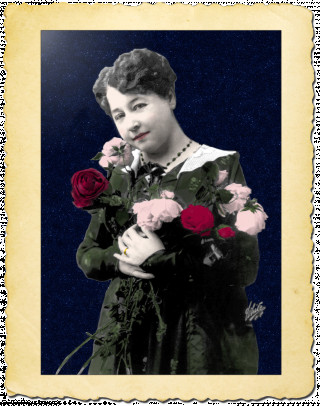Gwendolyn Foster
Gwendolyn Audrey Foster is the Willa Cather Endowed Professor of English and Film Studies at the University of Nebraska-Lincoln, where she teaches courses specializing in film, class, race and gender studies, as well as eco-critical approaches to film and popular culture. In addition, she is the co-editor of the new book series Quick Takes: Movies and Popular Culture for Rutgers University Press. Her many books include such titles as A Short History of Film (Rutgers University Press, co-written with Wheeler Winston Dixon, second edition 2013; third edition 2018); Class-Passing: Social Mobility in Film and Popular Culture (Southern Illinois University Press, 2005); Performing Whiteness: Postmodern Re/Constructions (State University of New York Press, 2003); and Identity and Memory: The Films of Chantal Akerman (Southern Illinois University Press, 2003).
As a filmmaker, Foster's work has been screened at Outfest (LA), Bi Arts Festival (Toronto), Anthology Film Archives (NYC), Nederlands Filmmuseum, Rice Museum, Collective for Living Cinema, Swedish Cinemateket, National Museum of Women in the Arts (DC), Bibliotheque Cantonale (Switzerland), International Film Festival of Kerala (India), Films de Femmes (Creteil), Women's Film Festival (Madrid), Kyobo Center, (Korea), Santa Barbara Museum of Art, Metropolitan Museum of Art (NYC), Université Laval (Quebec), Forum Yokohama (Japan), Amos Eno Gallery (NYC), SLA 307 Art Space (NYC), Maryland Institute College of Art, Studio 44 (Stockholm), Museum of the Future (Berlin), X-12 Festival (UK), BWA Contemporary Art Museum (Poland), Filmhuis Cavia (Amsterdam), nGKB gallery (Berlin), Chimeres Space (Athens), Engauge Festival (Seattle), and many other venues and festivals around the world. (07/19)
Available Title(s):

Women Who Made the Movies
A film by Gwendolyn Foster, 1992, 55 min, Color/BW
From the very beginnings of motion picture history, women have played prominent roles in front of the camera. But little is known about the major roles women played behind the camera as directors, writers, editors and other creative roles. Women were making films of great importance at the same time that better known male directors…
Read More